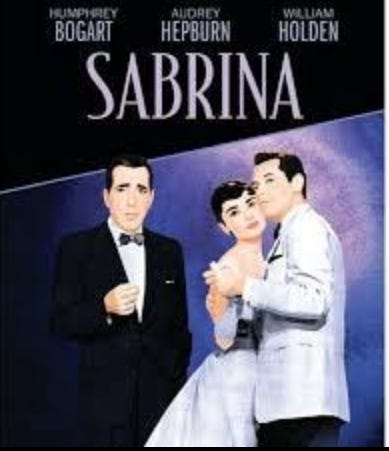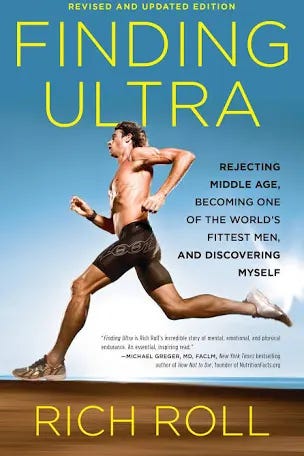Hello,
It is officially fall. The leaves here in New York are changing color, the weather is getting cooler (though this run of 70 degree days has been super nice), the Halloween costumes have all be picked out, and I have a new book coming out this week.
Night Marchers. Book 2 in my Eddie Ankin Crime Thriller series.
All of you who subscribe to this list should have gotten a link to your FREE copy of the book last week. My way of saying thanks for following along with me, (and for shamelessly soliciting reviews from those of you who have the time to check out the book and drop me a rating on Amazon.)
In case you haven’t downloaded your FREE copy yet, here is a link where you can get the book:
https://BookHip.com/SDXXRRS
A very good friend of mine recently had his first child, a baby daughter. This friend of mine is one of those people you can just tell is going to be a good father. He’s got the affectionate and loving disposition, and I couldn’t be happier for him and his wife. As it turns out, my friend, like me, his first child is a girl.
Dads and their daughters…it’s a special relationship. It can certainly be tricky to raise a girl, particularly in today’s world. So, in honor of my friend and his new baby girl, I wanted today’s Movie Life’s Lesson to be about one of my favorite characters in any movie — a chauffeur.
The movies have interfaced to all manner of “wise men” (and women)—from Jedi Masters, samurai hitmen, and patriarchal mafia dons, to one of my personal favorites, Sabrina Fairchild’s father—the chauffeur.
Wait, who?
A chauffeur?
Surely I mean the rich person riding in the backseat, right?
No. I mean the chauffeur. The driver.
Believe it or not, this is an important character in movies. From Morgan Freeman’s “Hoke” in Driving Miss Daisy and Viggo Mortensen in Green Book to Ryan Gosling in The Driver, people behind the wheel in the movies ofter have a lot of wisdom to offer.
In the classic movie Sabrina, directed by Billy Wilder, from a screenplay he co-wrote with Samuel A. Taylor and Ernest Lehman, based on Taylor's 1953 play Sabrina Fair, later remade in 1995 directed by Sydney Pollack and starring Julia Ormond, Harrison Ford, and Greg Kinnear, the focus often shifts between the complicated love triangle involving Sabrina Fairchild and the two wealthy Larrabee brothers. But there’s another man quietly stealing the show, teaching us some of the most valuable life lessons in the process—Sabrina’s father, Thomas Fairchild, the Larrabees’ chauffeur.
His role is understated, much like his lifestyle, yet his wisdom runs deep. If you only see him as a man driving the rich around, you're missing the heart of his story: the love for his daughter and his quiet mastery of life.
Looks Can Be Deceiving
At first glance, Thomas Fairchild is just the chauffeur. He lives above the garage, has no outward signs of wealth or status, and spends his days in the service of the affluent Larrabee family. But underneath the simple exterior lies a man of considerable means—both financially and emotionally.
What most people don't realize is that Thomas has amassed his own small multimillion dollar fortune, not through flashy business deals or inheritance, but by quietly investing in the stock market. His position as a driver gives him proximity to the Larrabee family’s business dealings, and with keen observation and a good ear, he’s able to make wise investment decisions. Yet, he doesn’t flaunt his wealth. His lifestyle remains simple because he knows what he values: his books and his daughter, Sabrina.
This is a crucial lesson in the age of appearances, where so many people judge success by the car you drive or the house you live in. Thomas shows us that true wealth is more than material—it's having the wisdom to know what’s important and the humility to live without needing validation from others.
Thomas Fairchild is a man who… [read the full post here] https://open.substack.com/pub/jeremyelice/p/movie-life-lessons-sabrina-the-power?r=zfbw6&utm_medium=ios
QUOTE I’M PONDERING:
“Go slow to get fast.”
-Rich Roll
From “Finding Ultra” (2012)
I recently reread “Finding Ultra”, Rich Roll’s 2012 biography, where he details his transformation from an alcohol-addicted corporate lawyer to a middle-aged, overweight father who became one of the world's premier ultra-athletes. It's a great read, and I highly recommend checking it out.
In his journey, Rich does what many of us hope to do when trying to improve—he overhauls his routine and life, adopting healthier habits. He switches to a plant-based diet and commits to a consistent workout routine that includes long trail runs in Southern California and swimming laps—a sport he excelled at in high school and college.
At first, his approach was all about "no pain, no gain." He pushed hard on every run and swim, just as he had in his youth. But when he decided to take on a major endurance challenge, he realized he needed a coach. After completing a fitness analysis at Phase IV in Santa Monica, his coach gave him surprising advice: "Slow down."
Rich, accustomed to going fast, was taken aback. "Go slower?" he asked. "How will that make me faster?"
His coach replied, "You have to go slow in order to go fast."
I’m a big fan of counterintuitive ideas—concepts that, on the surface, seem to contradict the desired outcome. These ideas often contain hidden wisdom, revealing insights the rest of us might overlook. That’s why I pay attention when I hear them.
Read the rest of the Book Life Lesson post and learn how to apply the concept of “Go Slow To Get Fast” to your own life…
I hope wherever you are you are enjoying your autumn and spending time with the people you love, hopefully with a good book, kicked back watching a great movie.
Regards,
Jeremy







